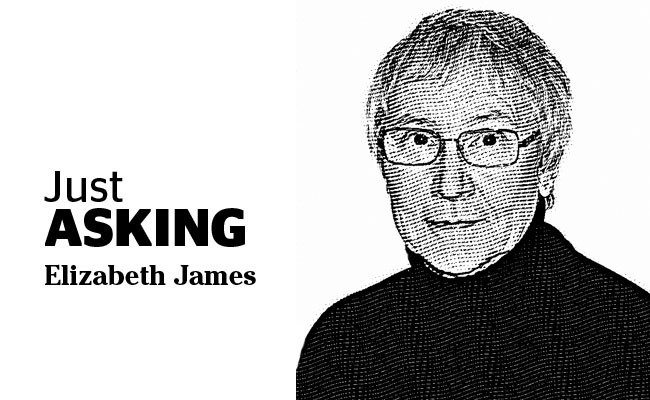“If vegetation is lost from our streets there is less to regulate urban temperatures. Hard surfaces absorb heat in the day and release it at night, making it difficult to sleep,” explains Rebecca Matthews Joyce, principal environmental adviser at the Royal Horticultural Society.
— BBC News Magazine, May 19, 2015
In their article The Decline of the British Front Garden, authors Harry Low and Tom Heyden point out there are other environmental issues when green space is covered over with paving. “Apart from offering privacy, trees and plants absorb dust and provide a place for birds to nest and insects to feed.”
As have many others in the Greater London area, Low and Heyden reinforce the fact that paving over lawns and gardens, while eliminating the need for fertilizers and irrigation, places a much larger burden on sewer and sewage treatment infrastructure.
Yet, not only has the issue of storm-water runoff been raised many times on the North Shore, local engineering experts have pointed out that reducing that unnecessary load could avoid the need to build another multi-billion dollar wastewater treatment plant.
So what of the decision by City of North Vancouver council to pave over 1.26 acres or approximately 29 per cent of the total area outside Grand Boulevard Park?
On the basis that, in addition to a paved centre strip, “multi-modal” pathways (shared bike lanes) on either side of the park would be installed on the currently green road allowance, the 5-2 decision on March 6 approved the project as part of the city’s Green Necklace.
Aside from Mayor Darrell Mussatto’s claim that the lanes will give commuters transportation alternatives that will encourage them to leave their cars behind, it’s hard to argue against Coun. Don Bell’s rationale for voting to approve.
“I remember how difficult it was to push my father around in his wheelchair,” he explained.
“So I have sympathy for people who try to push strollers, or get around the city on scooters or in wheelchairs,” he said.
I support Bell’s point but still agree with local resident Brian Miltimore who, in addition to environmental issues, foresees an increase in orthopedic injuries in direct proportion to the loss of walkable green space in the city and in Metro Vancouver in general.
Quoting numbers from the Canadian Orthopaedic Foundation, Miltimore pointed out that orthopedic injuries account for 65 per cent of injuries to pedestrians and that prevention of knee injuries alone could reduce osteoarthritis and future pain in those joints by around 20 per cent.
I can relate. Apart from the fact that walking on hard surfaces bothers my back, my younger brother, a lifetime runner, has had both hips replaced — made necessary, his doctor said, by the pounding his joints had taken over the years.
That said, this discussion cannot end without mention of another important aspect of the issue — Mayor Mussatto’s expectation that paving a significant portion of the highly successful Grand Boulevard park strip will get people out of their cars is, I believe, a political pipe dream. So long as council keeps building over every inch of the city and, thereby, driving jobs and businesses farther afield, automobile use will increase. That is especially so if our cash-strapped TransLink keeps spending close to half a million dollars on bike lane projects instead of on truly effective public transportation alternatives.
• • •
Now for an equally serious story but perhaps, in a more light-hearted vein:
My phone rang on March 8 but because caller ID displayed an unfamiliar number in the Ottawa area, I let it go to voice-mail.
“Elizabeth, this is Officer Ryan (?) of the Canada Revenue Agency. Mumble, mumble. You need to rectify immediately! I need you or your lawyer to call me back as soon as possible on my number 613-366-7244. Don’t try to disregard this message!”
I had already heard about this scam that threatens arrest and other dire consequences if the victim fails to send a specified amount of money to the bogus CRA address provided. The amounts vary to as high as $5,000.
“This fraudster,” I thought, “is one I might be able to foil.”
So I contacted RCMP Cpl. Richard De Jong and offered myself up as bait. Immersed in the Agatha Christie role, I suggested he might want to play lawyer on my behalf.
Long story short, Officer De Jong called the number but, as he suspected, there was no answer and the line went dead.
“These people have ‘feeder’ lines that are tagged,” he explained.
“They can tell when a call isn’t coming from the person they’d called.”
So adopting the police parlance I’ve learned from Michael Connelly’s books, I thought the case would go cold. Not so.
Because one young North Shore man was taken in by the scam and may not retrieve his $4,000, De Jong’s colleague Cpl. Peri Mainwaring told me last Friday that the RCMP will be making a presentation about this and other scams on March 31 from 11 a.m.-1 p.m. outside the North Vancouver detachment at 147 East 14th St. Now that should be interesting!
[email protected]
What are your thoughts? Send us a letter via email by clicking here or post a comment below.



